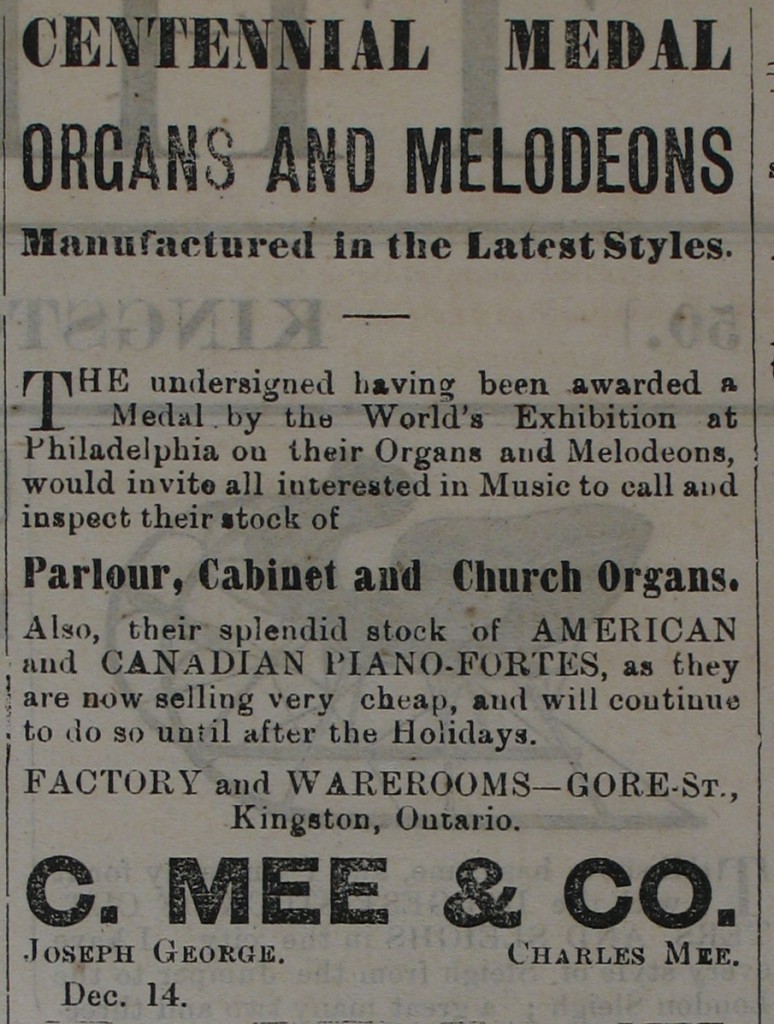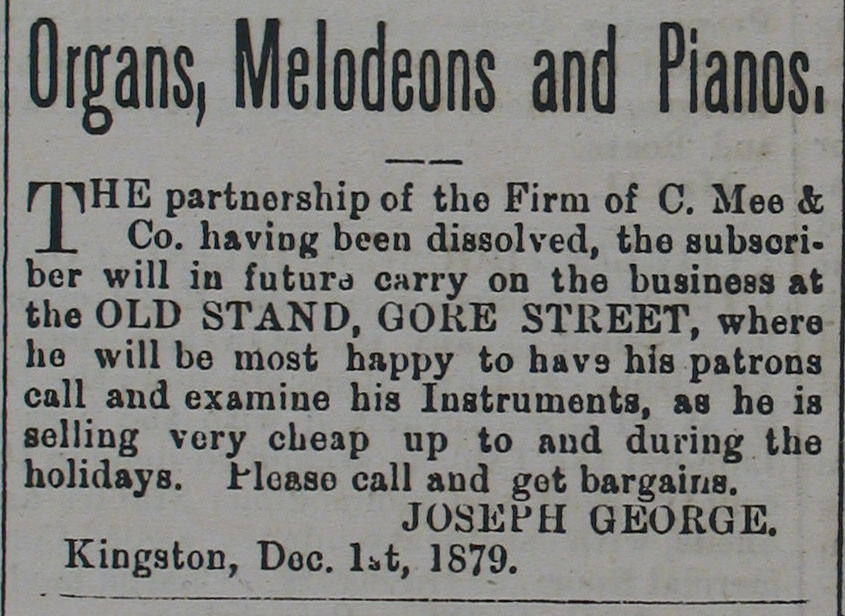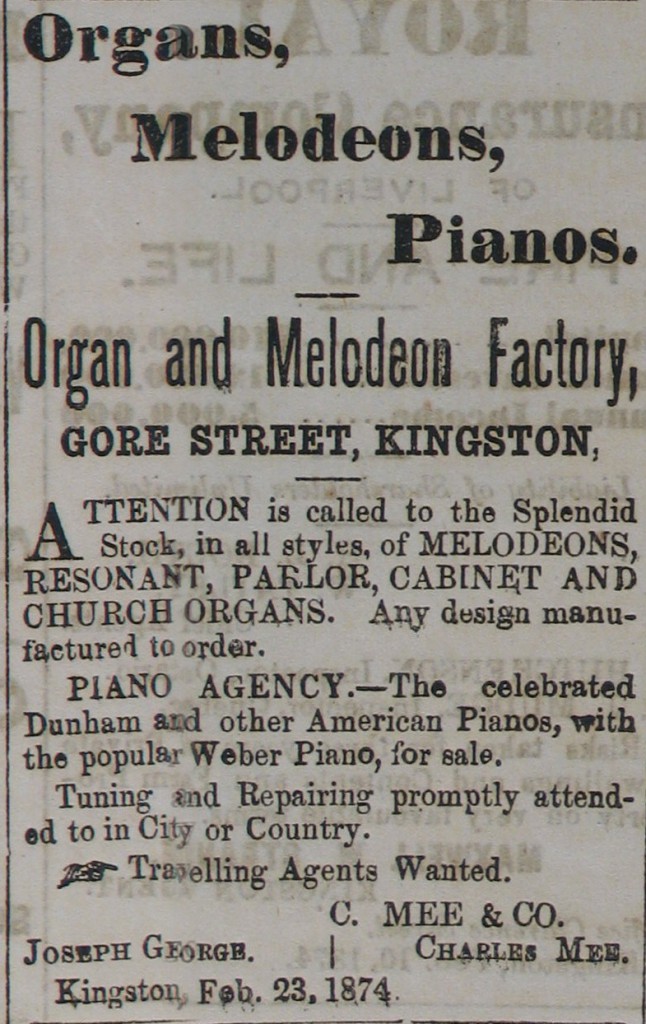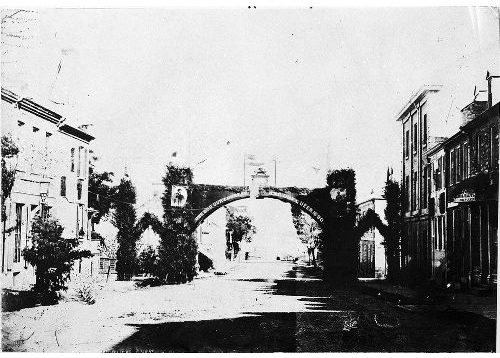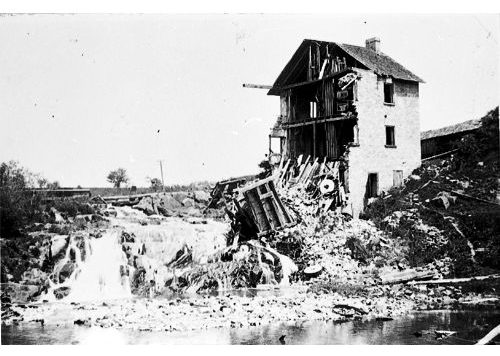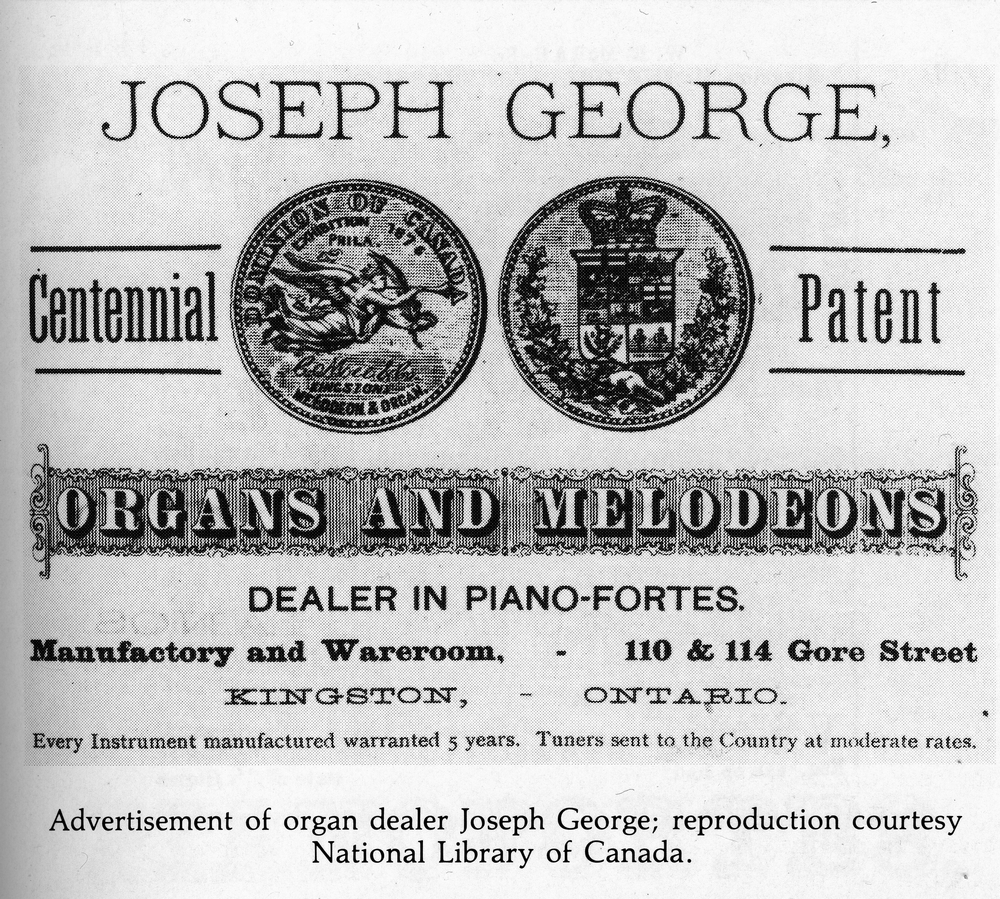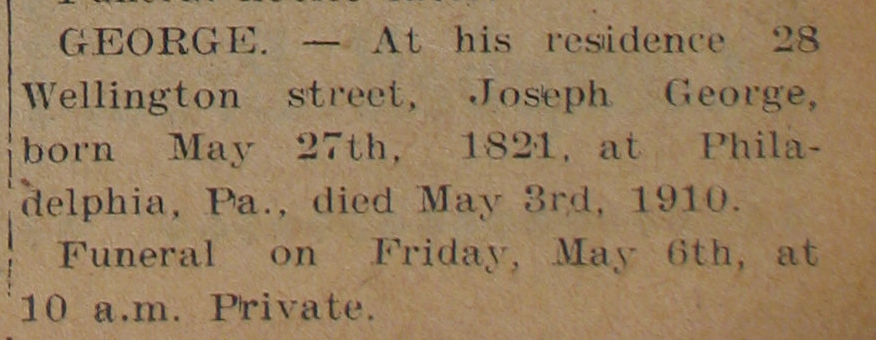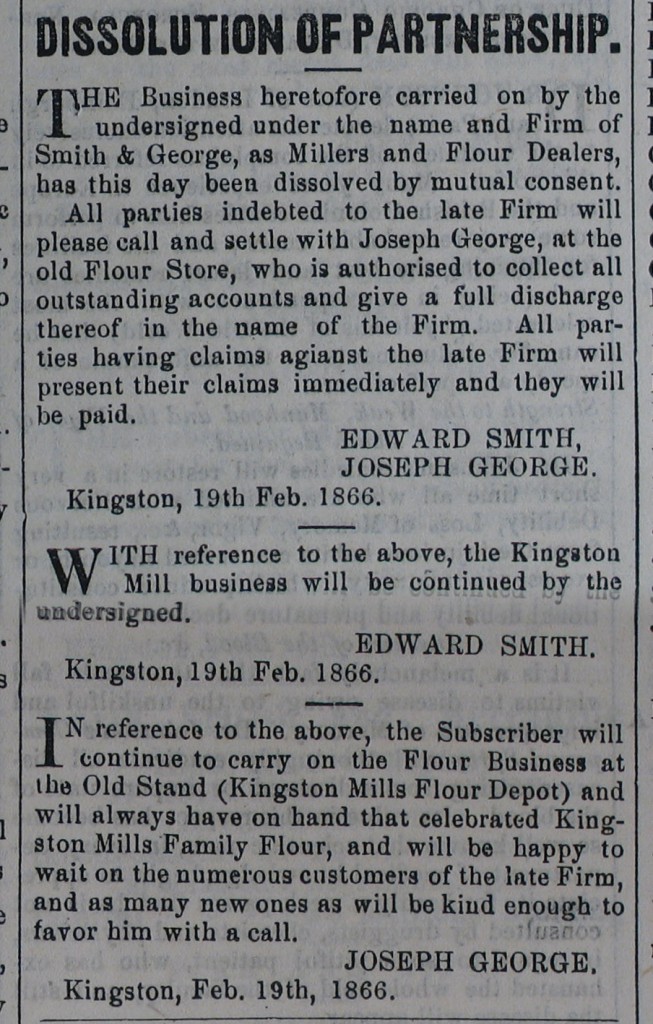Street Address : 112 Gore Street
Period : 1850-1900
Joseph George came to Kingston in 1842 from Pennsylvania. He landed at Counter’s wharf, after crossing from Oswego on the steamer Oneida. Here to visit his brother living on Wolfe Island, he decided to stay. The 1851 Canada Directory listed him under “Builders & Contractors,” on Wellington Street. He rented his residence, also on Wellington Street, from owner John Shaw. He purchased lot 9 on the bottom of Princess Street, west of the present S&R department store, in December 1852. Wooden buildings on it were rented to members of the poorer class – the 1859 assessment records list a laborer, widow, pensioner and carter as among the tenants. Here in January 1860 a two-storey house, divided into apartments, and a small cottage close by, burned down with the loss of four lives. George still had some financial involvement with the property after 1870. In 1854 he purchased land on the north-west corner of Wellington and Lower Union Streets, where he established his shop and lumber yard. By 1855 he also owned rental property on Rideau Street. An ad in the 1857/58 Kingston Directory describes him as “Carpenter and Builder, Lumber, Lath & Shingle Yard, Wellington Street, (near the park,) Kingston, C.W.” In the 1860s he branched out, becoming a partner in the firm of Smith & George, as Millers and Flour Dealers. At their Kingston Mills Flour Depot on Wellington Street they sold their “celebrated Kingston Mills Family Flour.” This partnership was dissolved in 1866. Using the terms in vogue at the time, the 1861 census described him as “Mulatto” while the 1871 census said “African.”
On 1 January 1871, Joseph Reyner and Charles Mee formed a co-partnership, named Reyner & Co., to operate an Organ and Melodeon Factory in a stone building at King and Princess Streets. They quickly realized more room was required. Joseph George bought lot 211, on which 112 Gore is now located, in February 1871. Two months later, it was announced that he was going to build a melodeon factory and two “residences” above it on Gore Street. By July 1st Reyner & Co. had moved in. The display area and finishing and tuning department were on the first floor; on the second floor, the case making was carried on; and the third storey was used for varnishing and polishing. Expensive lumber, lathes and machinery for sawing fret work were contained in the basement. Fifteen men were constantly employed. They were successful enough to win two prizes at the Provincial Exhibition that fall. However, in May of 1872, Reyner announced that he had withdrawn to devote himself entirely to the tuning and repair of musical instruments. Joseph George replaced him as a partner, and the new company was named C. Mee & Co. The company produced Parlour, Cabinet, Celeste and Resonant Organs, as well as Melodeons and Harmoniums. In 1875 they opened a new wareroom on the corner of Princess and King Streets to display their products. At the Central Fair that fall, they won first prize for their harmonium and melodeon, and second prize for their organ. For the 1876 Philadelphia Centennial Exposition they entered an organ and melodeon, both made of rosewood and with Mee & Co.’s patent pedal. They were awarded medals for both.
An ad in the 21 March 1879 Daily British Whig informed readers of their fine stock of parlour, cabinet and church organs, as well as American Pianofortes. They had a wareroom on Princess Street at the Singer Sewing Machine Company, in addition to the manufactory and wareroom on Gore Street. Despite the appearance of success, two weeks later the company was involved in the Court of Chancery. The decision of that court, that defendant Joseph George, as a creditor of the firm, was owed $17,935, ultimately resulted with him becoming sole owner. The city directories for many years list him as a piano and organ manufacturer on Gore Street, occasionally mentioning that he also sold sewing machines.
Joseph generously contributed to worthwhile causes in his community. In 1881 he donated an organ valued at $250 to Queen’s University. The university placed this gift in Convocation Hall. He also supported the Orphan’s Home and was an active member of the Sons of Temperance for most of his life. In 1902 he gave a presentation before the Kingston Historical Society about the changes he had seen since his arrival in 1842. (Unfortunately, no copy of his talk has been found.). He passed away in 1910, survived by his second wife Abbie, and was buried in Cataraqui Cemetery. He was remembered as a successful businessman and active member of the Kingston community.
Research article :
- Ad for Melodeon factory C. Mee & Co. British Whig Standard 23 Feb 1874 p2 (Special Collections)
- Ad in the Whig, 21 March 1879. Daily British Whig, 21 March 1879 p2 (Special collections)
- Daily British Whig, 22 Oct 1902 (Special Collections?) Historical Society, description of opening meeting where Joseph George read his paper.
- Daily News 14 Dec 1876 p2 (Special Collections) Record of prize won at Philadelphia Centennial Exposition 1876 (ad)
- Daily News 2 May 1872 p2 (Special Collections) Notice of dissolution of partnership between Reyner, George and Mee,
- Daily News, 2 April 1873 p.1 (Special Collections) Ad for C. Mee & Co.
- Daily News, 20 february 1866 (special collections?) Notice of dissolution of partnership in the Flour Mill
- Daily News, 3 April 1896 p2 (Special Collections) Notice about Mee & Co. Organs that were going to centennial being displayed
- Daily Standard, 4 May 1910, p.5 (Special collections?) Notice of Joseph George’s death
- Daily Standard, 1 Dec 1879`(Special collections?) Notice that the partnership had dissolved and place that Joseph’s new business will take place
- The Daily British Whig Article/notice about fire that burnt place down 1860 (two storey houses that Jo George rented out at bottom of Princess street)


